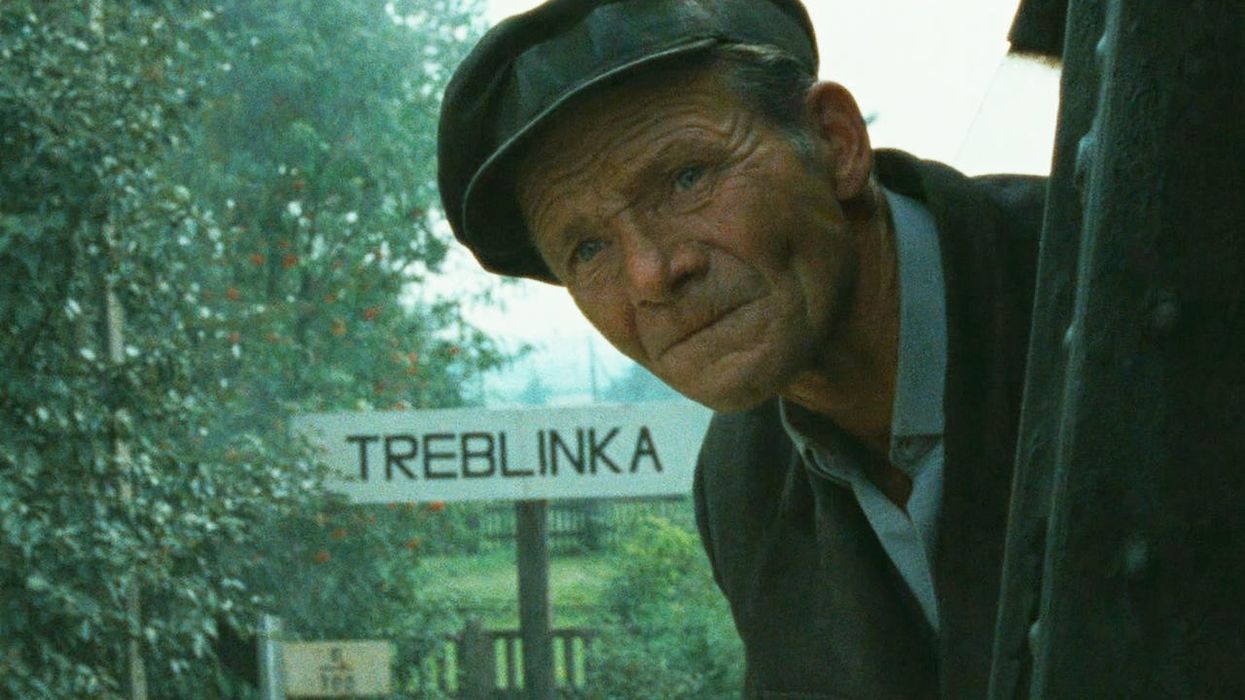RIP Claude Lanzmann, Director of Genre-Defining ‘SHOAH’
French documentarian and journalist Claude Lanzmann has died at age 92.

It has been a sad week for the global filmmaking community. On the heels of the announcement of beloved Dutch cinematographer Robby Müller’s passing, we learned of the loss of French documentary filmmaker Claude Lanzmann at the age of 92.
Lanzmann built his career as a journalist and eventually editor-in-chief of the French publication Les Temps Modernes founded by influential left-wing intellectuals Simone de Beauvoir and Jean-Paul Sartre, a post he held for his entire working life. Lanzmann’s first documentary film, Pourquoi Israel? (Why Israel?), wasn’t released until 1973, when the filmmaker was 48 years old.
Lanzmann’s use of interview subjects as actors in their own historical recreations set a precedent for the docu-fiction hybrid style that is still popular today.
The following year, Lanzmann would embark on filming the documentary series that would come to define not only his career, but the contemporary art of documentary filmmaking. He worked on his 9.5 hour-long masterpiece, Shoah, for the next 11 years. Shoah is a relentless, exhaustive examination of the Holocaust (also commonly referred to as the “Shoah” or “catastrophe” in Hebrew) that eschewed convention by not showing the typical Holocaust imagery of gas chambers or starving prisoners, but rather displaying harrowing testimonies of both victims and perpetrators and recreations of their accounts.
According to a New York Times remembrance, “Shoah was never intended as a straightforward documentary or oral history, but rather what Mr. Lanzmann called ‘a fiction of the real.’ It was consciously artful, he said, so as to ‘make the unbearable bearable.’” Lanzmann’s use of interview subjects as actors in their own historical recreations set a precedent for the docu-fiction hybrid style that is still popular today.
The testimonies captured in this documentary also set the stage for Steven Spielberg’s USC Shoah Foundation, founded in 1994, which has since conducted over 50,000 filmed interviews with survivors of the Holocaust and other genocides in order to help prevent future atrocities.
Lanzmann, who was awarded an honorary Golden Bear by the Berlin film festival in 2013, went on to cull several other films from the more than 350 hours of footage captured over seven years for Shoah, and made films and TV series focused on other socially relevant topics, as well. His final film, Napalm, which was nominated for a Golden Eye at Cannes in 2017, focused on North Korea and was filmed by Cinematographer Caroline Champetier with a small Sony a7s digital camera to be as unobtrusive as possible in the tight-lidded North Korean environment.
Doggedly journalistic until his final years, Lanzmann will be missed not only for his influence on documentary cinema and rigorous witness testimony, but also for his indomitable quest for the truth.
Featured image from 'Shoah'.











